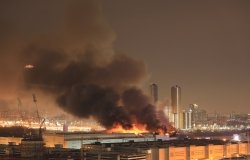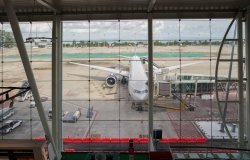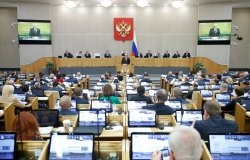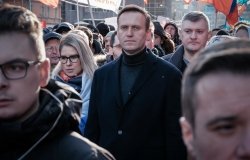
A blog of the Kennan Institute
Russia As a Mirror Image of Europe
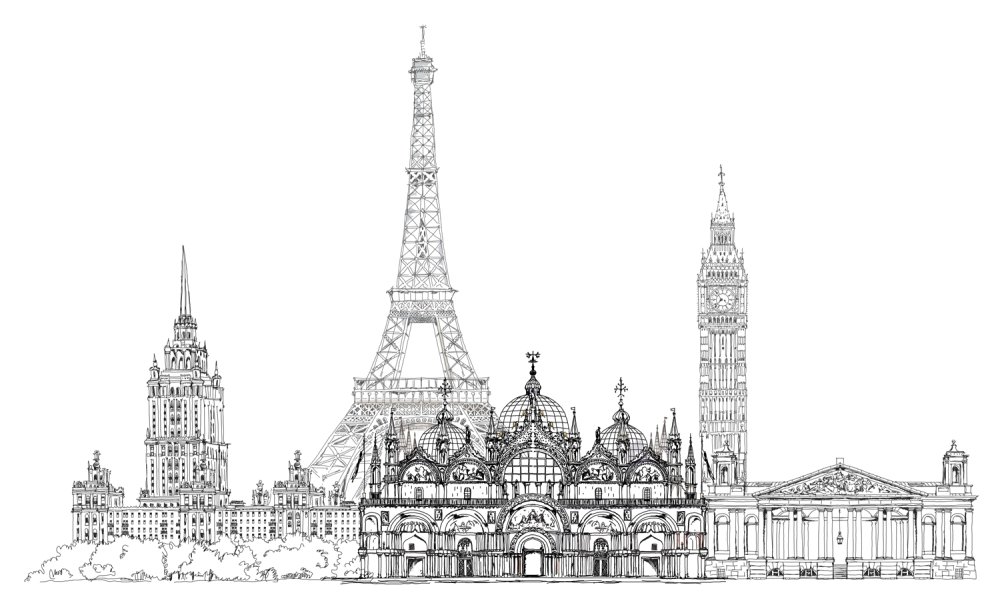
Russians have always been deeply interested in what is happening on the European continent. Europe matters to Russia so much that the past 500 years of our history have been driven by relations between the two. Will this centuries-old bond hold throughout the current time of troubles?
Russia has always aspired to catch up with European innovation and technological trends, but not with Europe’s political direction. A mirror image of sorts, Russia has always had a lot in common with Europe, but has still been a distorted, often inverted, reflection of many European trends. Russians have imported clothes and technologies, brought in European lifestyles and ideologies (i.e. communism, liberalism), but something that no Russian ruler would give up or replace with a Western equivalent has always remained: Moscow’s political system itself. The core foundations of the Muscovite pyramid (or vertical) of relationships that produced a corresponding political system have always stayed unchanged.
“Peter the Great took technical means for the functioning of the army, the fleet, the state and the economy from the West, but he took the supremacy of the czar’s power, basic rules and social estates from the Old Russia,” Russian historian Vasily Klyuchevsky wrote at the beginning of the 20th century. Russian cultural mores, including its values, practices, and attitudes have been considered sacred, while the ungodly Western ways have usually been looked down upon. Still, grudgingly, Moscow had to learn from Europe whenever Europe was seen as successful.
At least once or twice per century, a Russian ruler—be it a czar, a general secretary or a president—would realize his country to be hopelessly backward and would start a massive reform project. European neighbors would be seen as both rivals and teachers. Some Europeans would acquire special prominence under specific czars: Peter the Great learned from the Dutch and the Germans; Catherine the Great exchanged letters with French philosophers and invited German farmers to settle in Russia. German armorers, gun-makers, engineers, doctors, and, later, military officers and academics lived and were naturalized in Russia under all rulers.
Yet, in weakness or strength, Western Europe and Russia have, in fact, always mirrored each other.
Europe was Russia’s point of reference. Russians would go there to study, live, make artwork and write novels. Since time immemorial, Russia has exported raw materials to Europe and brought back technology and learning. Revolutionary ideas were of course a major imported commodity too. Vladimir Lenin spent at least 15 years in Britain, France and Switzerland and laid most of the intellectual groundwork for the Bolshevik project there.
Europe’s post-war expansion, as viewed from Russia, had two distinct phases: the Cold War and the post-Soviet period. During the Cold War phase, the progress that impressed the Russians the most was economic. Spurred by the Marshall plan, Western European countries showed an impressive recovery during the early post-war period. Some of them later achieved unprecedented prosperity for their citizens under benign political regimes and thus projected enviable soft power.
During the post-Soviet phase, Russia mostly focused its attention on Europe’s political progress. Ever since the fall of the Berlin wall, Russia has watched Europe as if from a growing distance: Europe was drifting away. The Soviet bloc lost all its members while the European project gained members and thrived. “After 1991, the European Union became the haven in which former members of the Warsaw Pact and then the Baltic States found refuge and to which Georgia, Moldova, and Ukraine looked for inspiration,” Alexander Baunov, editor in chief of the Carnegie Moscow Center website, writes in a recent piece. “The move toward Europe was also explicitly a rejection of Russia.”
In the Russian eyes, this decades-long European expansion project, including both post-war and post-Soviet periods, has now faltered. The more Moscow comes to consider a united West to be a failing project, the less it feels inclined to follow its lead. Conservative forces in Russia feel even more empowered, while progressives and liberals have ever more trouble defending their agenda. Those who believe that Russian practices, attitudes and relationships have always been far superior to the depraved ways of Europe now have the upper hand.
All of the above leads to a strange dichotomy: much about Russia seems European, but much of it is decidedly not. This is especially so when it comes to the Russian state as an institution. Russian classical music and literature are part of the European cultural tradition, but Russian institutions of power are a world apart from their European counterparts. This duality has been a source of mutual confusion and misunderstanding – some of it for centuries.
A mirror image of sorts, Russia has always had a lot in common with Europe, but has still been a distorted, often inverted, reflection of many European trends.
Many in Russia believed that the past wave of globalization would be a window of opportunity that would help Russia bridge its institutional gap with Europe. The opposite seems to have happened.
Following a wave of terrible terrorist attacks in Europe, Moscow is expecting separatist, anti-migrant and right-wing nationalist parties to come to power there. These are the kinds of forces the Kremlin feels an affinity for. They emphasize security and closed borders as ways of countering the flow of migrants and terrorism. This is what Moscow is doing, and it considers its authoritarian ways of fighting terrorism superior to those of Europeans. Moscow considers Brexit the most recent and visible of many events that point to the eventual break-up of the European Union and the weakening of other multilateral institutions. Russian officials and ideologues, in fact, feel empowered and self-assured enough not to feel the need to overreact to the recent NATO move to deploy four international battalions in Poland and the three Baltic states. And Moscow has yet to react to the ongoing operation of a U.S.-built anti-ballistic-missile system in Central Europe.
This is why today’s moment in history is so intriguing. It is the first time in decades that Europe’s progress, as seen from Russia, has stalled. The Kremlin does not, of course, expect Europeans to come to Moscow for advice on how to deal with the challenges of the day. But, with Britain out of the decision-making process, the Kremlin does expect a heightened role for Russia vis-à-vis what it sees as a newly weakened West.
Yet, in weakness or strength, Western Europe and Russia have, in fact, always mirrored each other. The last time anti-democratic forces were rising throughout Europe (during the late 1920s and 1930s), Russia was turning into a full-fledged totalitarian dictatorship. Communism and Fascism, the terrible regimes that defined 20th century, were mirror images of one another. When Europe was building a common market and learned to prioritize human rights irrespective of national borders, the Soviet regime, a distant reflection, was gradually, in its own way, becoming more benign and respectful of the rights of the individual. The values of common market and human rights seem to be on the retreat now, and both Europe and Russia are entering a cycle that, some fear, might be a repetition of the 1930s. Let’s just hope that both sides of the mirror have learned something from the past.
The opinions expressed here are solely those of the author.
About the Author

Maxim Trudolyubov
Editor-at-Large, Meduza
Maxim Trudolyubov is a Senior Fellow at the Kennan Institute and the Editor-at-Large of Meduza. Mr. Trudolyubov was the editorial page editor of Vedomosti between 2003 and 2015. He has been a contributing opinion writer for The International New York Times since the fall of 2013. Mr. Trudolyubov writes The Russia File blog for the Kennan Institute and oversees special publications.
Read More
Kennan Institute
The Kennan Institute is the premier US center for advanced research on Russia and Eurasia and the oldest and largest regional program at the Woodrow Wilson International Center for Scholars. The Kennan Institute is committed to improving American understanding of Russia, Ukraine, Central Asia, the Caucasus, and the surrounding region though research and exchange. Read more



